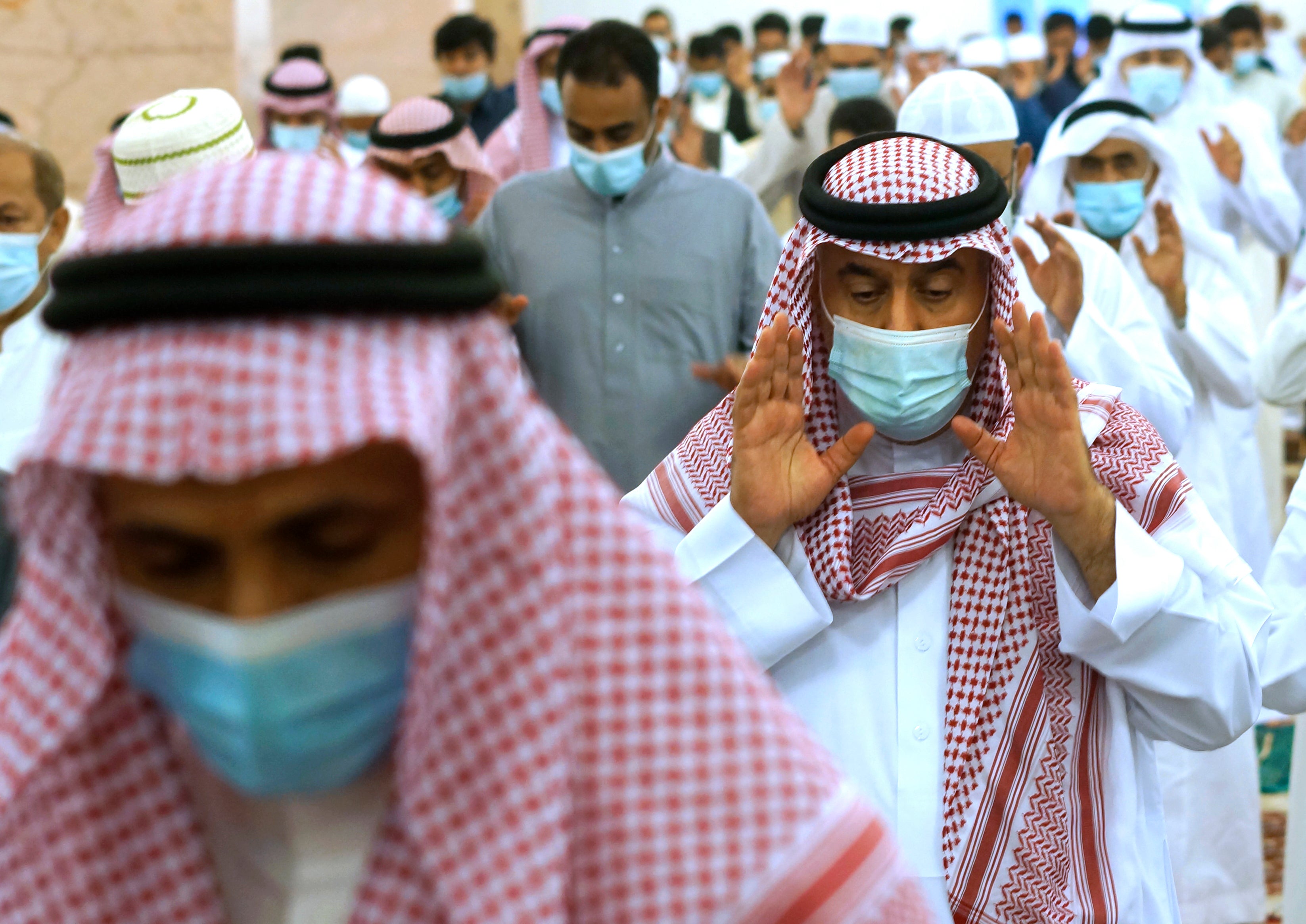Saudi Arabia eases travel ban for vaccinated citizens
Vaccinated Saudis are being allowed to leave the kingdom for the first time in more than a year as the country eases a ban on international travel aimed at containing the spread of the coronavirus and its new variants

Your support helps us to tell the story
From reproductive rights to climate change to Big Tech, The Independent is on the ground when the story is developing. Whether it's investigating the financials of Elon Musk's pro-Trump PAC or producing our latest documentary, 'The A Word', which shines a light on the American women fighting for reproductive rights, we know how important it is to parse out the facts from the messaging.
At such a critical moment in US history, we need reporters on the ground. Your donation allows us to keep sending journalists to speak to both sides of the story.
The Independent is trusted by Americans across the entire political spectrum. And unlike many other quality news outlets, we choose not to lock Americans out of our reporting and analysis with paywalls. We believe quality journalism should be available to everyone, paid for by those who can afford it.
Your support makes all the difference.Vaccinated Saudis will be allowed to leave the kingdom for the first time in more than a year on Monday as the country eases a ban on international travel aimed at containing the spread of the coronavirus and its new variants.
For the past 14 months, Saudi citizens have mostly been banned from traveling abroad out of concerns that international travel could fuel the outbreak of the virus within the country of more than 30 million people. The ban, in place since March 2020, has impacted Saudi students who were studying abroad, among others.
In recent months, however, the kingdom has vaccinated close to 11.5 million residents with at least one jab of the COVID-19 vaccine, making them eligible to depart the country Monday under the new guidelines. Authorities will also allow people who have recently recovered from the virus and minors under 18 years of age with travel insurance to travel abroad.
Saudi travelers are required to show their health statuses to airport officials through the government's health app, Tawakkalna. Travelers returning from abroad will be required to quarantine at home and be tested for the virus.
The kingdom, which has covered coronavirus-related hospitalizations for citizens and residents, imposed some of the most sweeping measures to prevent the spread of the coronavirus early on in the pandemic. They include shuttering mosques and businesses for several weeks at a time, dramatically scaling down the annual hajj pilgrimage to Mecca and sealing its borders to travelers.
A recent list of countries for which direct or indirect travel remains restricted, however, includes a number of high-risk nations, including Lebanon, Yemen, Iran Turkey and India.
Saudis will, however, be able to once again cross into neighboring Bahrain via the King Fahd Causeway starting Monday as restrictions are eased, according to local media reports. The tiny island nation where the sale of alcohol is legal under specific rules is a popular destination for Saudi residents and others seeking a short holiday.
The kingdom's flagship carrier Saudia will operate flights to 71 destinations, including 43 international destinations, starting Monday. Among them are Cairo, Sharm el-Sheikh, Dubai Kuala Lumpur, Paris, Athens, Frankfurt, Washington and New York.
With limited exception, foreigners from 20 countries, including the U.S., U.K, UAE and France, remain banned from entering the kingdom.
Saudi Arabia has recorded more than 430,000 cases of the virus since the start of the pandemic, including more than 7,160 deaths. Close to 1,400 people remain in critical condition with the virus.
Although tourist visa holders to Saudi Arabia remain barred from entry, the kingdom is aggressively marketing its sites to would-be visitors.
At Dubai’s in-person Arabian Travel Market show this week, Saudi Arabia is heavily marketing its Red Sea coastline and heritage sites such as the desert Al-Ula ruins and the fort of Diriyah outside Riyadh.
The kingdom had opened up to international tourism in September 2019, just months before the coronavirus outbreak.
___
Batrawy reported from Dubai, United Arab Emirates.